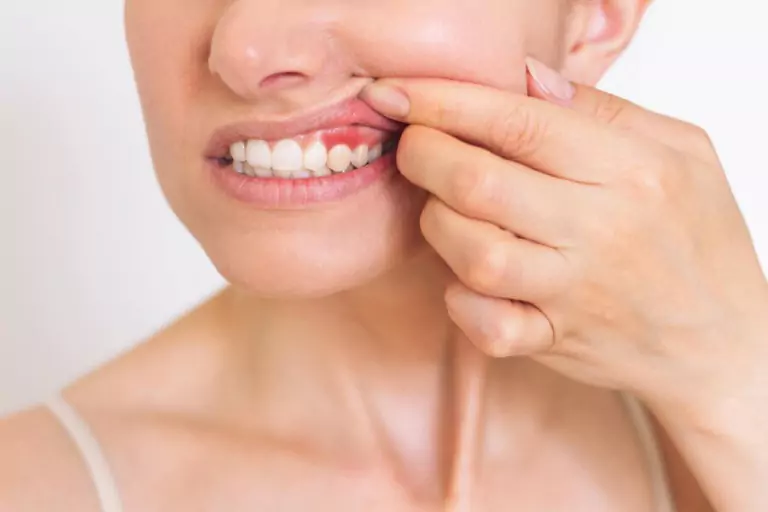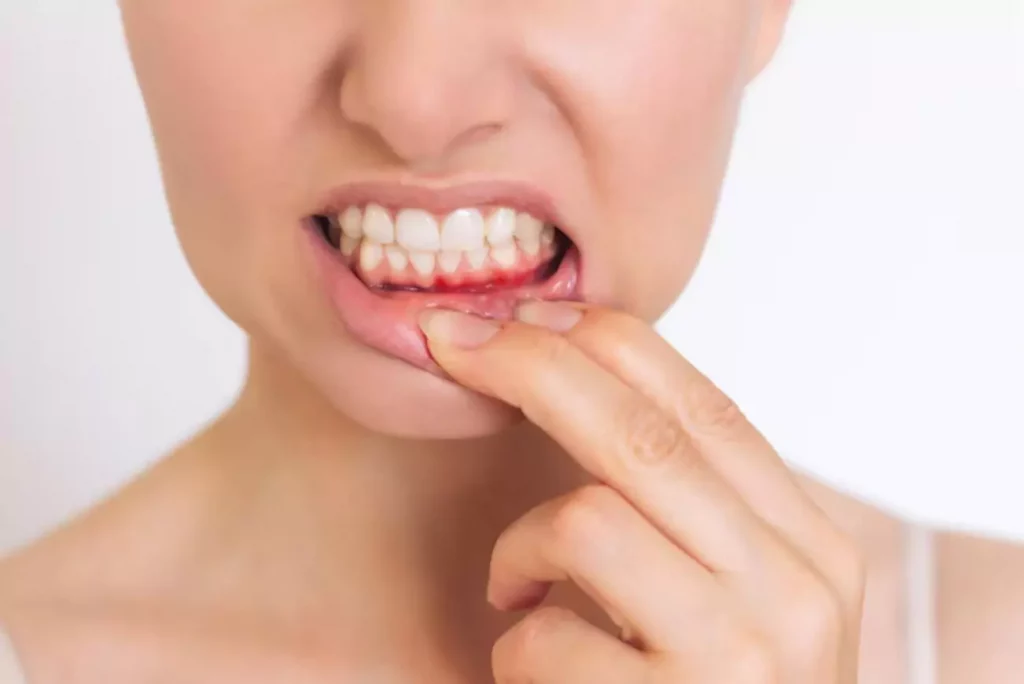
- Home
- About
- Our Team
- Services
- Postoperative Care
- Smile Gallery
- Medical Tourism
- Blog
- Offers
- Contact Us
- Home
- About
- Our Team
- Services
- Postoperative Care
- Smile Gallery
- Medical Tourism
- Blog
- Offers
- Contact Us

Gum swelling is a frequent problem that can cause discomfort, bleeding, and even gum disease if not treated appropriately. Understanding the reasons and practicing preventative dental hygiene measures can help keep gums healthy and relieve discomfort. In this blog, we will look at not just how to prevent gum swelling but also the reasons and symptoms.
Gum swelling, also known as gingival swelling, is when the gum tissue becomes inflammatory and swollen. This might occur in a small region or throughout the mouth. It may be accompanied by redness, irritation, and bleeding, especially during brushing or flossing. Swollen gums are typically an indicator of gum disease or other underlying health problems.
There are various possible reasons for gum swelling, including:
Plaque buildup: Plaque is a sticky layer of germs that builds on your teeth. When not eliminated with regular brushing and flossing, it can irritate the gums, causing swelling.
Gingivitis: This is the early stage of gum disease when plaque and bacteria cause inflammation in the gums. Gingivitis is treatable with regular dental care, but if not treated, it can lead to more serious gum disease.
Infections: Bacterial or fungal infections in the mouth can produce swollen gums. Conditions such as oral thrush and tooth abscesses are typical causes.
Hormonal Changes: Pregnancy, menstruation, and menopause all produce hormonal swings that increase blood flow to the gums, making them more prone to swelling.
Poor Nutrition: A lack of important vitamins and minerals, notably vitamin C, can weaken gums and cause inflammation.
Allergic Reactions: Certain meals, toothpaste chemicals, or dental products might cause an allergic response and swollen gums.

Brush Properly Twice a Day: The manner in which you clean your teeth has a huge impact on reducing gum swelling. To avoid irritating your gums, use a toothbrush with soft bristles. Brush lightly along the gum line to eliminate the plaque that causes swelling. Brush for two minutes twice a day.
Floss Daily to Remove Hidden Debris: Flossing is essential for eliminating food particles and plaque from regions that a toothbrush cannot reach. This lowers the risk of gum inflammation and swelling between the teeth. Make flossing a regular routine to help keep your gums healthy.
Use an Antibacterial Mouthwash: Rinsing with antibacterial mouthwash can help destroy the germs that cause gum swelling. Mouthwashes with chlorhexidine or essential oils can help decrease plaque accumulation and support healthy gums.
Stay hydrated: Drinking water throughout the day helps to keep your mouth clean by washing out food particles and germs that can cause gum irritation. Hydration also increases saliva production, which naturally protects your gums from germs.
Eat a Balanced Diet Rich in Vitamins: Nutrient deficiencies, particularly in vitamin C, can weaken gum tissues and cause swelling. Incorporate vitamin and mineral-rich foods into your diet, such as citrus fruits, leafy greens, and dairy products. This aids in strengthening your gums and reduces irritation.
Quit smoking: Smoking is a major risk factor for gum disease. It weakens the immune system, making it more difficult for your gums to recover from infections or inflammation. Quitting smoking is a vital step towards better gum health.
Visit your dentist regularly: Regular dental check-ups are essential for detecting early indications of gum disease and avoiding swelling. Your dentist may properly clean your teeth to eliminate tartar and plaque, which reduces the likelihood of inflamed gums. Visit your dentist every six months to maintain good gum health.
While moderate gum swelling may usually be treated with proper dental care, persistent or severe swelling should not be overlooked. If you experience gum swelling that lasts longer than a week or is accompanied by discomfort, bleeding, or pus, see your dentist right away. These might be symptoms of a more serious problem, such as periodontitis or a tooth abscess, which requires professional attention.
Gum swelling is generally an indication that something is wrong with your dental health, but it may be avoided with careful care. Understanding the reasons and following excellent dental hygiene, such as brushing, flossing, using mouthwash, and seeing your dentist on a regular basis, can help keep your gums healthy and pain-free. A well-balanced diet and the avoidance of hazardous behaviors such as smoking are also important in reducing gum swelling.